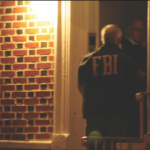Illegally Seized Evidence Due to Illegal Search is Subject to Suppression in Court
Police officers who conduct “knock and talk” procedures in the early morning hours are trespassing, and a defense request to have all evidence suppressed due to illegal search and seizure must be granted.

The Suppression of Evidence Can Lead to the Dismissal of All Charges
The notoriously conservative Michigan Supreme Court recently decided two cases and upheld basic 4th Amendment protections for Michigan citizens. The cases dealt with whether evidence should be suppressed due to illegal search and seizure. In each case, police conducted a criminal investigation regarding marijuana butter. Marijuana butter is a healthier alternative to smoking or vaporizing medical marijuana. The officers approached the defendants’ homes at 4:00 a.m. in one case and 5:30 a.m. in the second case. It appeared to the officers in both cases that the residents of the houses were sleeping. The residents were surprised and alarmed by the early morning contact with the police. Both defendants consented to law enforcement’s searches of their homes at the officers’ request during these early morning interactions. The procedure where an officer knocks on a door without a warrant and requests consent to search is commonly called a “knock and talk.”
At the trial court level, both defendants argued that the time of the early morning confrontations was unreasonable and coercive. Additionally, the attorneys argued that the officers were essentially trespassing because no person would reasonably be on the property of these defendants at these early morning hours, especially when it appeared the residents of the homes were sleeping. In each case, the trial judges denied the defense’s Motions to get the evidence suppressed due to illegal search and seizure.
Searches Found to be in Violation of the 4th Amendment Because of Illegal Search and Seizure
In analyzing these cases, the Supreme Court justices found that the officers were trespassing when they approached the defendants’ homes in the pre-dawn hours because they exceeded the scope of the implied permission given by homeowners for other people to approach their homes. The court found people should only reasonably expect visitors during reasonable hours. Because the officers came to the houses in the middle of the night, they were trespassing. The court found that because the officers performed the “knock and talk” procedure, while the officers were trespassing, the subsequent searches of the homes violated the 4th Amendment prohibition against unreasonable searches and seizures.
The court is further examining whether the fact that both homeowners consented to the searches removes the illegality of the searches.

Why should illegally obtained evidence be suppressed due to illegal search and seizure?
Illegally obtained evidence should be suppressed due to an illegal search as a fundamental protection of an individual’s constitutional rights and to uphold the criminal justice system’s integrity. The exclusion of such evidence is primarily based on the Fourth Amendment of the U.S. Constitution, which guards against unreasonable searches and seizures. By suppressing evidence obtained in violation of constitutional rights, the justice system aims to deter law enforcement from engaging in unlawful practices and to prevent abuses of power. This safeguard ensures that defendants’ rights to privacy, due process, and protection against self-incrimination are respected. Additionally, the exclusionary rule promotes fairness and maintains the credibility of the judicial process, as evidence tainted by illegal means is deemed unreliable and thus unfit for consideration in court. By upholding the principle of excluding illegally obtained evidence, the justice system endeavors to strike a balance between law enforcement’s duty to investigate and prosecute crimes and the paramount importance of protecting individual rights and liberties.
What is the 4th Amendment about?
The Fourth Amendment was included in the United States Constitution as part of the Bill of Rights, ratified on December 15, 1791. The Amendment was a response to the colonists’ experiences with British authorities during the colonial era and aimed to protect individual privacy and security from unreasonable searches and seizures. Without the 4th Amendment, a judge would have no legal basis for the suppression of evidence due to illegal search and seizure.
The main reasons for including the Fourth Amendment were:
- Protection from Unreasonable Searches and Seizures: The Fourth Amendment directly responded to the British practice of issuing general warrants and writs of assistance, which allowed British authorities to conduct searches without specifying the place to be searched or the items to be seized. These practices were viewed as invasive and oppressive, and the Fourth Amendment sought to prevent similar abuses of power by the newly formed U.S. government.
- Preservation of Privacy Rights: The framers of the Constitution believed in the importance of individual privacy and sought to safeguard it through the Fourth Amendment. It ensures people are secure in their persons, houses, papers, and effects, free from unwarranted government intrusion.
- Balance of Power: The Fourth Amendment contributes to the system of checks and balances in the United States. It serves as a restraint on law enforcement and other government agencies, preventing them from conducting searches or seizures without proper justification or legal authorization.
- Protection of Due Process: The Fourth Amendment is rooted in the principle of due process, which ensures that individuals are treated fairly under the law. It requires that searches and seizures be based on probable cause and be supported by a warrant issued by a neutral and detached magistrate.
Overall, the Fourth Amendment plays a crucial role in preserving individual freedoms and limiting the scope of government authority, ensuring that law enforcement operates within the bounds of the law while respecting the rights of citizens. It remains an essential element of the U.S. Constitution, shaping the nation’s legal system and protecting the privacy of its citizens.
Most Common Reasons Judges Order Evidence Suppressed Due to Illegal Search and More
Judges may order the suppression of evidence in criminal cases when certain legal principles are violated, or evidence is obtained in ways that infringe on a defendant’s constitutional rights. Here are some of the most common reasons for evidence suppression:
- Unlawful Search and Seizure: The Fourth Amendment of the U.S. Constitution protects individuals from unreasonable searches and seizures. If law enforcement conducts a search without a valid warrant, consent, or probable cause, any evidence obtained during that search may be suppressed.
- Miranda Rights Violation: The Fifth Amendment guarantees the right against self-incrimination, and the landmark Miranda v. Arizona ruling requires police to inform individuals of their rights during custodial interrogations. If a defendant’s Miranda rights are not properly read or respected, any statements made during questioning might be suppressed.
- Coerced Confessions: Confessions or statements made under duress, coercion, or threats are inadmissible in court. Judges will suppress such evidence to protect the defendant’s right against self-incrimination.
- Violation of Right to Counsel: The Sixth Amendment guarantees the right to legal counsel. If law enforcement continues to interrogate a suspect after they have invoked their right to an attorney, any evidence obtained during that time may be suppressed.
- Lack of Probable Cause for Arrest: Evidence obtained during an arrest without sufficient probable cause may be suppressed. Law enforcement must have reasonable grounds to believe that a crime has been committed or is in progress before making an arrest.
- Exclusionary Rule: The exclusionary rule prevents evidence obtained illegally or in violation of constitutional rights from being used in court. This rule aims to deter law enforcement from engaging in unlawful practices.
- Chain of Custody Issues: To ensure the integrity of evidence, a proper chain of custody must be maintained from the time it is collected to its presentation in court. If there are discrepancies in the handling or documentation of evidence, it may be suppressed.
- Fruit of the Poisonous Tree Doctrine: This legal principle states that evidence obtained indirectly from illegally obtained evidence is also inadmissible. If evidence is found as a result of a prior illegal search or action, it may be suppressed as “fruit of the poisonous tree.”
It’s essential to note that each case is unique, and the decision to suppress evidence ultimately rests with the judge overseeing it. If you are facing criminal charges and believe that evidence was obtained unlawfully, it is essential to consult with an experienced criminal defense attorney who can assess the circumstances and advise you on the best course of action.
When can police search a home without a warrant?
Under the U.S. Constitution, the Fourth Amendment safeguards individuals’ privacy and restricts police from conducting searches of houses without a warrant. The Amendment requires that warrants be issued by a neutral and detached magistrate, supported by probable cause, explicitly describing the place to be searched and the persons or items to be seized. However, there are exceptions to this rule. One exception is when the homeowner or someone with authority over the premises voluntarily consents to the search. Another exception arises when there are exigent circumstances, such as an immediate threat to public safety or the need to prevent the destruction of evidence.
Additionally, if police are lawfully present at a location and discover incriminating evidence in plain view, they may seize it without a warrant. Despite these exceptions, the Fourth Amendment’s protection against unreasonable searches remains a vital safeguard of individual freedoms. It ensures that law enforcement operates within the bounds of the law while respecting the privacy of citizens in their homes.
When can the police search a car without a warrant?
Under certain circumstances, the police can conduct a search of a car without a warrant, thanks to the “automobile exception” to the Fourth Amendment’s general requirement for a warrant. This exception allows law enforcement to search a vehicle without obtaining a warrant if they have probable cause to believe that the car contains evidence of a crime or contraband. The rationale behind this exception is that vehicles are inherently mobile, and obtaining a warrant may not be practical as the evidence could be easily moved or destroyed before the warrant is secured. For the exception to apply, the police must have a reasonable belief that the search will yield evidence related to a specific crime. Moreover, the search is generally limited to the areas where the evidence could reasonably be found, not a broad and unrestricted search of the entire vehicle. While the automobile exception allows for warrantless searches of cars, it is subject to constitutional scrutiny pursuant to a Motion to Suppress and Dismiss to ensure that the search was based on probable cause and conducted within the permissible scope of the exception.
When can police search someone in public without a warrant?
Police can search someone’s clothing or bags in public without a warrant under certain circumstances, typically based on exceptions to the Fourth Amendment’s warrant requirement. One exception is the “stop and frisk” rule established by the landmark Terry v. Ohio Supreme Court case. Under this rule, if a police officer reasonably suspects an individual is armed and dangerous, they can perform a brief stop and frisk to ensure the person is not carrying any weapons. The frisk is limited to patting down the outer clothing to detect potential threats. Additionally, a warrant is not required if an individual consents to the search, whether it’s their clothing or bags. Consent must be voluntary and not obtained through coercion or intimidation.
Furthermore, if the police observe contraband or illegal items in plain view during a lawful encounter in public, they may seize the items as evidence without a warrant. It’s essential to note that the “stop and frisk” exception is subject to the requirement of reasonable suspicion, which is a lower standard than probable cause needed for a full search warrant. Police must always ensure that any searches performed without a warrant fall within the permissible scope of the exceptions and respect individuals’ constitutional rights to privacy and due process.

Why did the Michigan Supreme Court rule that the searches were unconstitutional? Great lawyering!
Defendants are wrongfully convicted every day in Michigan, and illegally seized evidence is routinely relied upon by prosecutors and courts in seeking convictions and sentencing defendants. It takes a fearless, intelligent, and aggressive lawyer to advocate for and get a court to suppress illegally seized evidence. If you are charged with a crime in Michigan and want to make sure you are treated fairly and given every possible evidence opportunity to get the best result, you need top lawyers by your side. The Defense Team with LEWIS & DICKSTEIN, P.L.L.C. has a proven track record, and we are not afraid to fight for the suppression of illegally seized evidence and win!
Call us today at (248) 263-6800 for a free consultation or complete an online Request for Assistance Form. We will contact you promptly and find a way to help you.
















